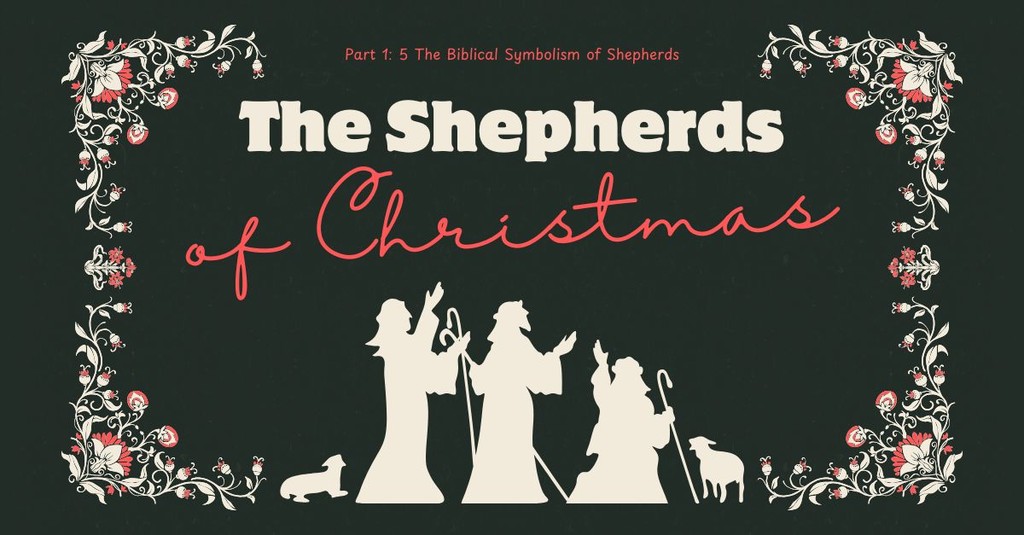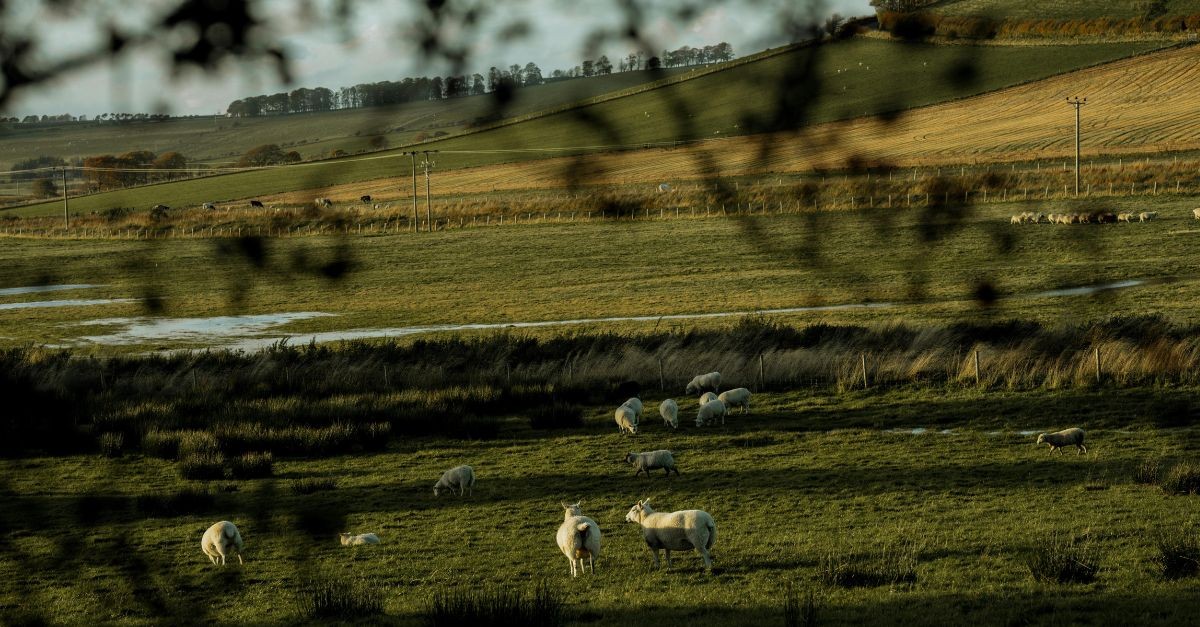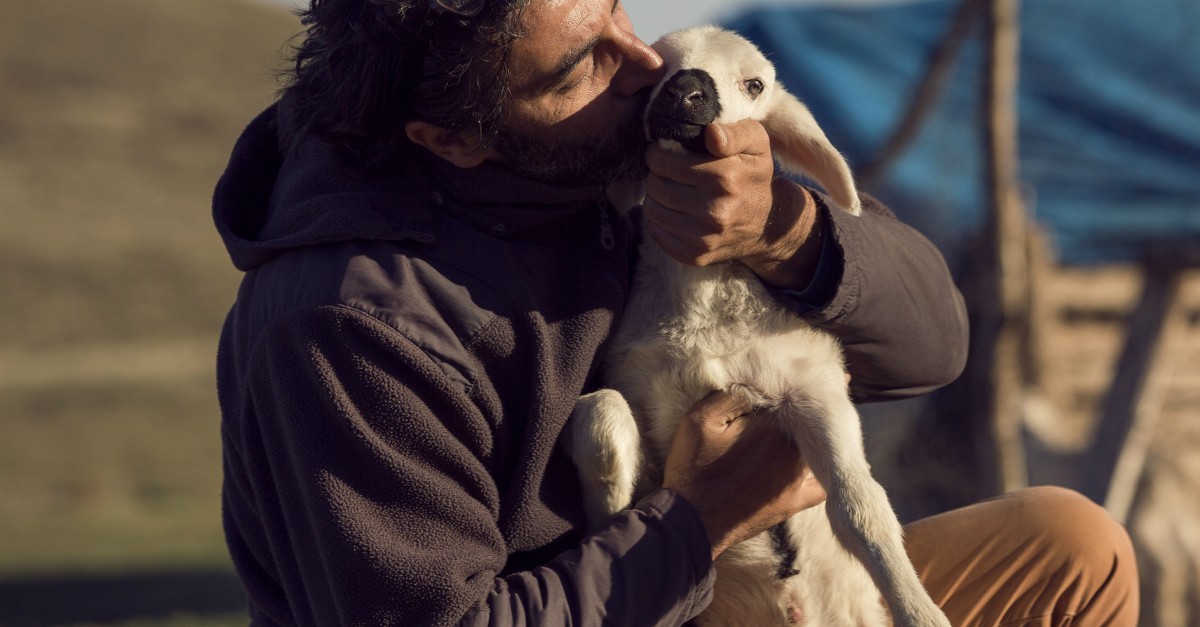
1. The Significance of Shepherds in the Bible
“I am the good shepherd; I know my sheep and my sheep know me— just as the Father knows me and I know the Father—and I lay down my life for the sheep.” - John 10:11-18
From Genesis to Revelation, the Bible is replete with references to sheep and shepherds. Shepherds and their sheep are among the most enduring and powerful symbols in literature, particularly biblical literature. In the ancient world, shepherds were integral figures and one of the oldest and most often mentioned occupations in the Bible.
The Bible’s first mention of shepherds is in Genesis 4. Abel, the son of Adam and Eve, is the first shepherd mentioned. While his story did not last long, his name and standing have obviously endured to the present day.
The entire Bible can be viewed as a rich tapestry of narrations, laws, poems, and prophecies. Ultimately, the Bible is God’s Word written down for us. Sixty-six books, written by forty-some authors over approximately 1500 years. It was written on three continents in three languages in multiple styles. Like any tapestry – if you step behind the Word, you can see the continual threads that run from one end to the other. The Messiah, of course, is the greater theme – but shepherds and sheep are another. From Genesis 1:1 to Revelation 22:21, constant themes inspire us and teach us. Themes that can be read – and felt. Pulling on the end of a thread at one end, you can feel it as it makes its way through the entire piece.
Such is the theme of sheep and shepherds. Even today, shepherds are seen as leaders, responsible for guiding groups of people with unfailing care and concern for the flock's well-being. So it is with the relationship between God and his people, illuminating his leadership and unfailing care and concern for his flock—us.
Sheep were directed to be used as sacrificial animals (Numbers 28:4; Exodus 29:39) but were also a significant source of income in the cultures of that time. Even in the temple during Jesus’ day, sheep “without blemish” were sold to travelers to Jerusalem who could not afford to take their sheep with them on a long journey. However, sheep are also symbolically used to represent God’s people (Matthew 25:32). John the Baptist refers to Jesus as the “Lamb of God who takes away the sins of the world.”
"The next day John saw Jesus coming toward him and said, “Look, the Lamb of God, who takes away the sin of the world!" - John 1:29
Photo Credit: SWN Design

2. Who Was the First Shepherd?
"Later she (Eve) gave birth to his brother Abel. Abel took care of sheep. Cain farmed the land." - Genesis 4:2-3
While Abel’s story might be somewhat shorter than that of other Biblical figures – it is no less significant. It represents the first time in scripture that an offering was made to God and the first murder. The offering did not go well for Cain.
Abel was the first shepherd, and as such, he worked closely with his flock. He set the stage for this recurring theme through the rest of scripture. Cain was a farmer. Genesis tells us that after some time had passed, “Cain gathered some things he had grown and brought them as an offering to the Lord.” (Genesis 4:3; italics mine) Abel, too, brought an offering:
"He brought the fattest parts of some animals from his flock. They were the first animals born to their mothers. The Lord was pleased with Abel and his offering. But he wasn’t pleased with Cain and his offering. So Cain became very angry, and his face was sad." - Genesis 4:4-5
Abel’s offering was the firstborn of his flock and looked upon favorably by God. This suggests that even then, shepherding was a noble profession. Since Abel took care of sheep, this offering was indeed a lamb – and we can assume it was a lamb that had been slaughtered for just that purpose. Was it the first blood offering? Perhaps – or, as some scholars believe, the first may have been made to clothe Adam and Eve (Genesis 2:21.)
Was the Lord displeased with Cain because his offering had been “some things he had grown,” and Abel gave his finest? Or because Abel offered a blood sacrifice and not Cain? Either way, the Lord was unhappy with Cain’s offering – and Cain did not respond well, ultimately killing his brother Abel—the first human murder.
Photo Credit: ©Pexels/kailash kumar

3. How Did Shepherding Shape the Leadership of Israel's Founding Fathers?
"The Lord had said to Abram, “Go from your country, your people and your father’s household to the land I will show you." - Genesis 12:1
If you are familiar with the Old Testament, you already know that Abraham and his son Isaac led a nomadic life. In other words, they moved from place to place in search of pasture. (Genesis 12:16, 26:12-14)
Undoubtedly, the life of a shepherd was challenging, demanding a great deal of physical labor and vigilance. One had to understand the land and the animals under their care. The story of these great ancestors of Israel underscores the values of patience, faithfulness, and persistence—all qualities of great leadership.
And then Jacob…well, his name might say a lot. When he and his brother were born, Jacob came out “with his hand grasping Esau’s heel.” (Genesis 25:26). Thus his name, meaning “he grasps the heel,” which was a Hebrew expression for “he deceives” – which he did to both his brother and his father, Isaac, causing him to run away and stay with his Uncle Laban, for whom he…of course, tended sheep. After many years, Laban, too, was about to be deceived by Jacob.
Jacob and Laban agreed that Jacob would continue to shepherd Laban’s flocks, and Jacob would keep every speckled or spotted sheep and every dark-colored lamb as his wages. Jacob used trickery – and his shepherding expertise - to ensure that all the young sheep born to the flock were speckled or spotted. Scripture reads,
“ In this way the man (Jacob) grew exceedingly prosperous and came to own large flocks, and female and male servants, and camels and donkeys.” - Genesis 30:43
Abraham, Isaac, and Jacob, the founding fathers of Israel, were all shepherds—not all perfect, but leaders all. Jacob had twelve sons—ten of whom, plus two grandsons adopted by Jacob, became the fathers of the twelve tribes of Israel, with one leading the priestly order.
Even when Jacob and his sons and their families moved into Egypt, they were all shepherds. Pharoah gave them the land of Goshen to live in—separate and apart from the Egyptians, who found shepherds detestable.
Then Joseph said to his brothers and to his father’s household, “I will go up and speak to Pharaoh and will say to him, ‘My brothers and my father’s household, who were living in the land of Canaan, have come to me. The men are shepherds; they tend livestock, and they have brought along their flocks and herds and everything they own.’ When Pharaoh calls you in and asks, ‘What is your occupation?’ you should answer, ‘Your servants have tended livestock from our boyhood on, just as our fathers did.’ Then you will be allowed to settle in the region of Goshen, for all shepherds are detestable to the Egyptians.” - Genesis 46:31-34
Of course, Moses - who was born in Egypt and would later become the deliverer and lawgiver of Israel – spent forty years in the Midian desert as a shepherd after fleeing Pharoah. (Exodus 3:1) Perhaps it was as a shepherd that Moses gained the skills and wisdom necessary to lead and care for God’s people. His experience dealing with stubborn sheep likely prepared him for his future role, leading stubborn, often rebellious people who often wandered off from the flock and needed to rely on their real shepherd, God, to defend them.
Photo Credit: ©Pexels/Süleyman Şahan

4. Why Does the Bible Compare Us to Sheep in Need of a Shepherd?
"Then we your people, the sheep of your pasture, will praise you forever; from generation to generation we will proclaim your praise." - Psalm 79:13
The Old Testament is rich with imagery of God's nature and relationship with Israel. One of the most powerful metaphors is God as shepherd.
One of the earliest mentions of God’s people being compared to sheep comes from Psalm 79:13. Why would we be compared to one of what today is considered one of the dumbest and weakest creatures known to man? The truth is that spiritually, we are very much like sheep for several reasons.
How Are We Like Sheep?
1. Sheep have no defense system of their own.
Sheep are basically quite helpless without a shepherd to guide and protect them. In Matthew 9:36, Jesus compares us to sheep without a shepherd, leading him to feel compassion for the crowds. In the book of Numbers, Moses implores God to appoint someone over the people so they will not be like people without a shepherd. Leading us, of course, to the first verse of Psalm 23, from David:
"The Lord is my shepherd, I lack nothing."
Paul wrote that without the Lord, we are helpless when Satan attacks, but…
"But the Lord is faithful, and he will strengthen you and protect you from the evil one." - 2 Thessalonians 3:3
2. Sheep are notorious for following their leader, regardless of how dangerous or foolish it may be.
Like humans, they are extremely gullible and will follow an attractive, charismatic new leader with a shiny new object or idea. Numbers 16:2, Acts 13:50, and 19:34 are just a few scripture examples of the human herd mentality. We see it today every time we turn on the news. When Pilate brought Jesus before the crowd, the very people who welcomed Jesus into Jerusalem with palm branches and shouts of Hosanna, who rejoiced at his miracles, yelled, “Crucify Him.”
3. Sheep are prone to wander away from the flock.
"We all, like sheep, have gone astray, each of us has turned to our own way; and the Lord has laid on him the iniquity of us all." - Isaiah 53:6
Like sheep, we become overconfident and prideful – or distracted by the shiny new objects we see. We see greener grass and move towards it, but we fail to see how far we have moved away from the flock. And, like sheep, our only chance of survival is with the flock, under the care of a “good shepherd” who makes us lie down in green pastures and leads us beside still water (Psalm 23:2) Like a lion who is prowling around seeking someone to devour (1 Peter 5:8) the evil one is waiting to find a lamb who has wandered too far from the flock. Too far from our shepherd - Jesus.
In the Gospel of Luke, Jesus tells the parable of the lamb that had strayed away from the rest and became lost. The shepherd left the ninety-nine in the fold to search for that one lost lamb – and when he found it, celebrated. (Luke 15:4-6) That Good Shepherd is Jesus:
“I am the good shepherd. The good shepherd lays down his life for the sheep.” - John 10:11
Photo Credit: ©Pexels/Danielle Block

5. How Has the Image of God as Shepherd Endured throughout Biblical History?
The book of Genesis was written some 1500 years before the birth of Jesus. Yet, the enduring image of God as shepherd of his people quite obviously endured for all that time—through King David, on up to the nativity, and far beyond. Yet, the image of a shepherd as a strong leader seemed to weaken over those years. Perhaps 400 years as slaves in Egypt, who hated shepherds, influenced that vision.
Even so, throughout the Old Testament, God is portrayed as a shepherd to His chosen people—a shepherd to Israel, who without him would wander off, lose their way, or go their own way and suffer death.
Despite his life of treachery, Jacob always seemed to return to God. In Genesis 48:15, as he was nearing death and blessing Joseph and his grandsons, he recognized God as his shepherd. A shepherd and his flock are an important, intimate bond that the shepherd will never break, as is the bond between God and his people.
May the God before whom my fathers
Abraham and Isaac walked faithfully,
the God who has been my shepherd
all my life to this day,the Angel who has delivered me from all harm
—may he bless these boys.
May they be called by my name
and the names of my fathers Abraham and Isaac,
and may they increase greatly on the earth.”
- Genesis 48:15-16
Photo Credit: ©GettyImages/Mahiruysal
Part 1: 5 Wondrous Insights from the Biblical Symbolism of Shepherds
Part 2: How King David’s Life Reveals the Role of a Shepherd
Part 3: 4 Reasons God Chose Lowly Shepherds to Announce Jesus' Birth

Greg doesn’t pretend to be a pastor, a theologian, or a Bible expert, but offers the perspective of an everyday guy on the same journey as everyone else – in pursuit of truth.
Greg can be reached by email or on Facebook @ Greg Grandchamp - Author.
Originally published Thursday, 24 October 2024.
